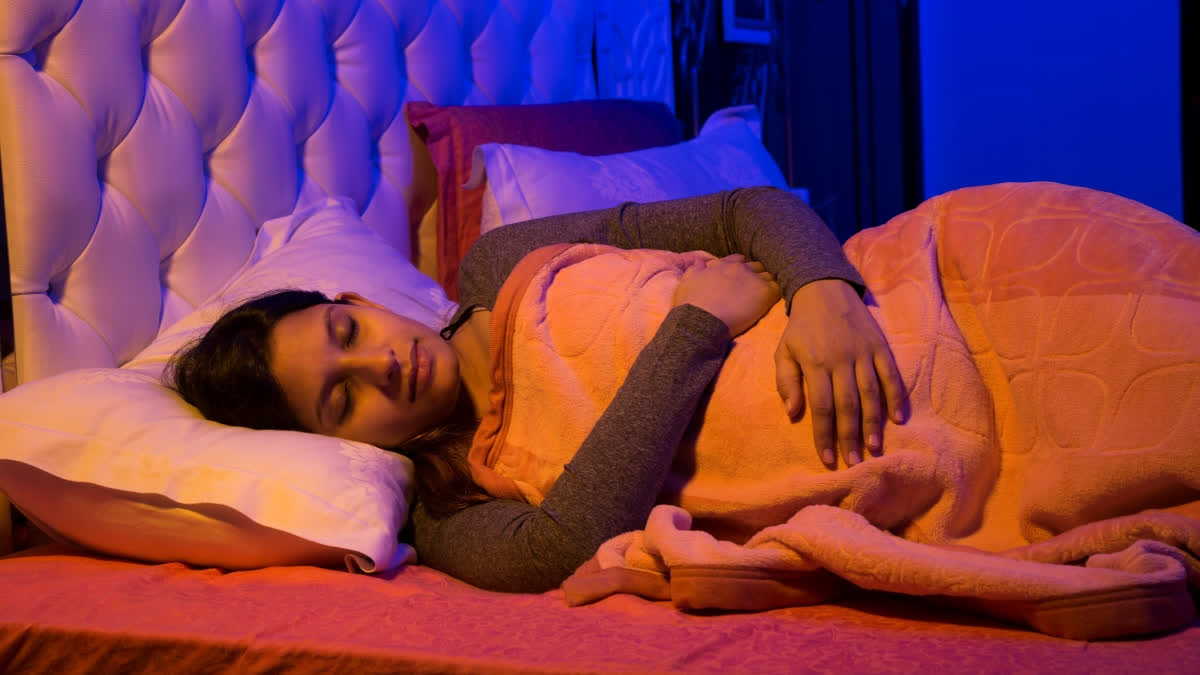Hyderabad: Any discussion on sleep patterns of individuals have always been in the air. With all the comprehensive studies, it has been established that maintaining a healthy lifestyle requires a minimum of seven hours of sleep each night.
Recent research has revealed that the ideal duration of sleep required varies not only with age but also with gender. The research suggests that women, on average, require slightly more sleep than men.
According to a study published in the "Sleep Journal" in 2014, women need an average of 7 hours 40 minutes of sleep, while men need 7 hours 20 minutes of sleep. According to this study, it is evident that women need at least 20 minutes more sleep than men. This study, encompassing 2,100 individuals aged over 40, serves as a pivotal benchmark in understanding the nuanced sleep needs across genders.
Multiple factors contribute to the heightened sleep requirements observed in women. Let's have a look at some of those.
1. Insomnia, Anxiety, Depression:
Major factors contributing to this finding are prevalent conditions such as insomnia, anxiety, and depression. Research indicates that women exhibit a 40 percent higher likelihood of experiencing insomnia compared to men, owing partly to their nearly twofold susceptibility to anxiety and depression. These psychological factors significantly impede women's ability to attain restful sleep.
2. Hormonal Changes:
Hormonal fluctuations inherent to female physiology play a pivotal role in influencing sleep patterns. Women experience cyclical hormonal changes on a monthly basis and throughout various life stages, thereby disrupting sleep continuity. Fluctuations in progesterone and estrogen levels during the menstrual cycle further contribute to sleep disturbances, leading to the requirement of additional sleep to curb these effects.
3. Pregnancy and Menopause:
Women may experience restless legs syndrome during pregnancy. Due to this they often experience depression, sleep apnea, pain, and unpleasant sensations in the legs. Similarly, menopause heralds a cessation of menstruation accompanied by intense hot flashes and profuse sweating in approximately 85 percent of women. These symptoms intensify sleep disturbances among women.
Precautionary Measures to Promote Optimal Sleep Hygiene
To mitigate the adverse effects of sleep deprivation and promote optimal sleep hygiene, several precautionary measures can be adopted:
- Practice regular exercise to facilitate relaxation and enhance sleep quality.
- Try to maintain a consistent sleep schedule, go to bed and wake up at the same time each day to regulate the body's internal clock.
- Maintain a conducive sleep environment with a comfortable mattress and pillows. Also, stay away from noise, light, and temperature fluctuations while sleeping.
- Do not consume stimulants such as caffeine and alcohol in the hours preceding your sleep time, as these substances can disrupt sleep patterns.
- Limit screen time before bed, as exposure to electronic devices can impede the body's natural sleep-wake cycle and inhibit the onset of restorative sleep.
By understanding the multifaceted nature of sleep physiology and implementing proactive measures to promote healthy sleep habits, individuals can safeguard their well-being and enhance their overall quality of life.
Read More
- Alert! Time Restricted Eating May Raise Risk of Cardiovascular Death, New Study Finds
- World Down Syndrome Day 2024 - 'End the Stereotypes'
- Getting Acne Even in 30s and 40s? Know All Reasons and Treatment
